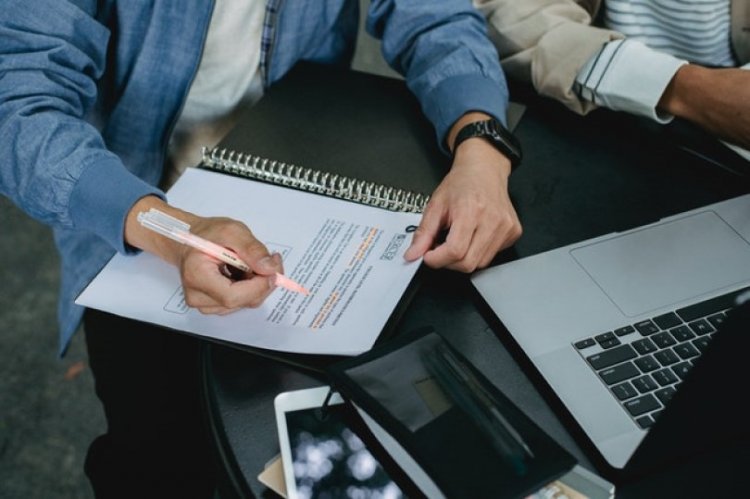The 5 best study techniques
Studying is something that we have to face on a daily basis and many times it becomes difficult, but do not be discouraged, take it easy and enjoy the study process.

In this article, you will find 5 techniques to make the most of your study hours. Remember that each person is different and a different way of studying is more effective. Therefore, we advise you to read what each study method consists of and select the one that best suits you. Of course, you can combine all these techniques or use them depending on the subject you have to learn, always seeking maximum effectiveness when studying.
What are study skills?
Study techniques or study strategies are different strategies and procedures related to learning. Through this set of methods, it is sought to optimize effort and performance when studying.
Importance of study techniques
Study Techniques will allow you to:
-Improve your achievements.
-Power the memorization of data and reasoning.
-Improve the level of concentration, attention and organization.
-Organize and see clear the medium and long-term objectives.
-Order work, prioritize and take advantage of available resources in a better way.
-Develop new methods and ways of facing future knowledge.
What are the best study techniques?
Next, we will explain the best 5 study techniques to help you learn to study and know the guidelines you have to follow in the study process.
1-THE "TESTING EFFECT"
The testing effect is a technique in which you must work from practice instead of theory. Evaluating the content you are studying can significantly benefit your long-term memory. This means that, after studying, you must carry out a self-evaluation of the topics read (depending on the subject you can take tests, exercises or mock exams). Studying in this way increases the retention of information in your brain and you learn faster.
After completing the self-assessment you can correct it by comparing it with your study material. Finding out whether your answers are correct or not right after you've answered will trigger an additional memory boost thanks to "immediate feedback."
You can carry out these steps as many times as you think necessary (study-self-evaluation-self-correction).
2-DISTRIBUTED PRACTICE
Generally, we start studying a few days before the exam, when pressure looms and we are forced to do so. But leaving it to the last minute only increases nervousness and decreases the effectiveness of the study.
We advise you to distribute and space the study topics prior to your exam. If you do and assimilate every day a little, the contents in your memory will be reaffirmed and your confidence will grow. To implement this technique, schedule the study period in your calendar, distributing the contents.
For example, you can mark on your calendar that on Tuesdays and Thursdays, you study 60 minutes on one topic and Monday and Wednesday on another topic. Create your own system! Do not forget that repetition will strengthen the concepts in your memory.
3-PREPARE QUESTIONS
Learning to ask is just as important as learning to answer. Asking questions will help you understand the texts and create personal responses, stimulating your memory in a more personal way.
The key to this technique is to ask yourself questions as you read, look for the why of things, What happens? When does it happen? Why (causes)? What consequences does it cause? Think that "The best answer comes after asking the best question." The more personal the question, the more the answer will be adjusted to your understanding and the faster you will memorize what you have studied.
Remember, the key is to ask yourself questions and seek the answers, speeding up the process of understanding and memorization. If you asked yourself and were able to answer it, you will not forget it.
4-INTERCHANGE SUBJECTS
The technique of interleaving subjects refers to studying two or more subjects that are related or can complement each other, for example, physics, mathematics and chemistry. The alternation of subjects makes it necessary to recall over and over content that has passed into long-term memory, which enhances the memorization of that content.
By interspersing different content in the same study session, you will be able to remember the subject better, retain the information better and for a longer time and be more precise in the medium and long term. In addition, it will increase your capacity for reasoning, understanding and retention, favoring your mental agility.
We advise you to start with distributed practice and then add another syllabus of the same subject or another subject that tends to stimulate creativity between the two and complement what you already know.
5-SELF-EXPLANATION
The self-explanation technique consists of explaining to oneself and in our own words what we have just read, relating it to concepts already learned. If you are able to explain the syllabus in your own way, you managed to understand and integrate well what you read.
This technique will help you increase creative reasoning and allow you to learn and retain information more easily in the long term. In addition, by relating concepts already learned with new ones, you will create more complex but at the same time more solid conceptual structures.
If you have a study partner, after reading a topic they can explain with their words what they understood to the other and discuss what they read. Brainstorming and reasoning out loud will help you learn and memorize faster.
What's Your Reaction?















